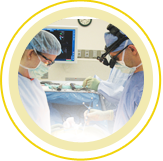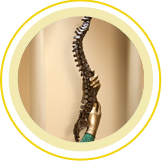We live in a world of instant gratification. After going through back surgery, most patients expect their back pain to disappear after surgery. They may think they will wake up, and the pain will be gone. In a lot of cases, some back pain is normal in the first 72 hours post-surgery, so don’t panic. Let us describe what is normal and what is not.
Pain After Back Surgery: What to Expect
Just like with any surgery or repair, there will be pain as you recover. Everyone is different, so how painful and how long the pain lasts will be different for each patient. You are going to be sore and tender for 4 to 6 weeks and sometimes up to 12 weeks before a full recovery.
If you continue to have pain that is not getting better after this time, or getting worse, contact the practice to let your surgeon know. They may want you to come in for some imaging tests and a consultation to be sure this is not just lingering post-op pain.
Managing Pain After Spine Surgery
There may be some recommended steps to manage your pain, but don’t get discouraged.
- Your surgeon prescribed several medications following your surgery, including anti-inflammatory drugs and medications to manage nerve pain. Additionally, opioid medications may have been prescribed for short-term use only, due to their potential for addiction.
- Epidural may be recommended next. This is sometimes used for chronic back pain not corrected by surgery. This injection can reduce swelling and pain around damaged nerves and around spinal nerve roots.
- Physical therapy is the necessary third step in this process, and it can be either active or passive therapy.
Why Are You Having Pain After Back Surgery?
Pain that lasts much longer than expected after back surgery can become chronic. It is often called failed back surgery syndrome. It is pain that lasts much longer than expected, but it doesn’t necessarily mean that the surgery was unsuccessful. It can mean that it failed to correct the right problem. It could be that was not the only cause of the pain.
In addition, there could have been complications developed during or after your surgery:
- Blood clots can form during or after surgery
- Infection
- Nerve damage can occur post-surgery when surrounding tissue forms at spinal nerve roots. This scar tissue is known as epidural fibrosis, and it causes numbness and tingling.
When to Contact a Spine Specialist
It is vital that you talk with your surgeon throughout this process and keep your care team informed of any changes. Don’t hesitate to get a second opinion if your pain is not improving.
Contact Spine & Scoliosis Specialists at 336.333.6306 for a second opinion in Greensboro or High Point, NC to discuss your options if you continue to have back pain after surgery.



